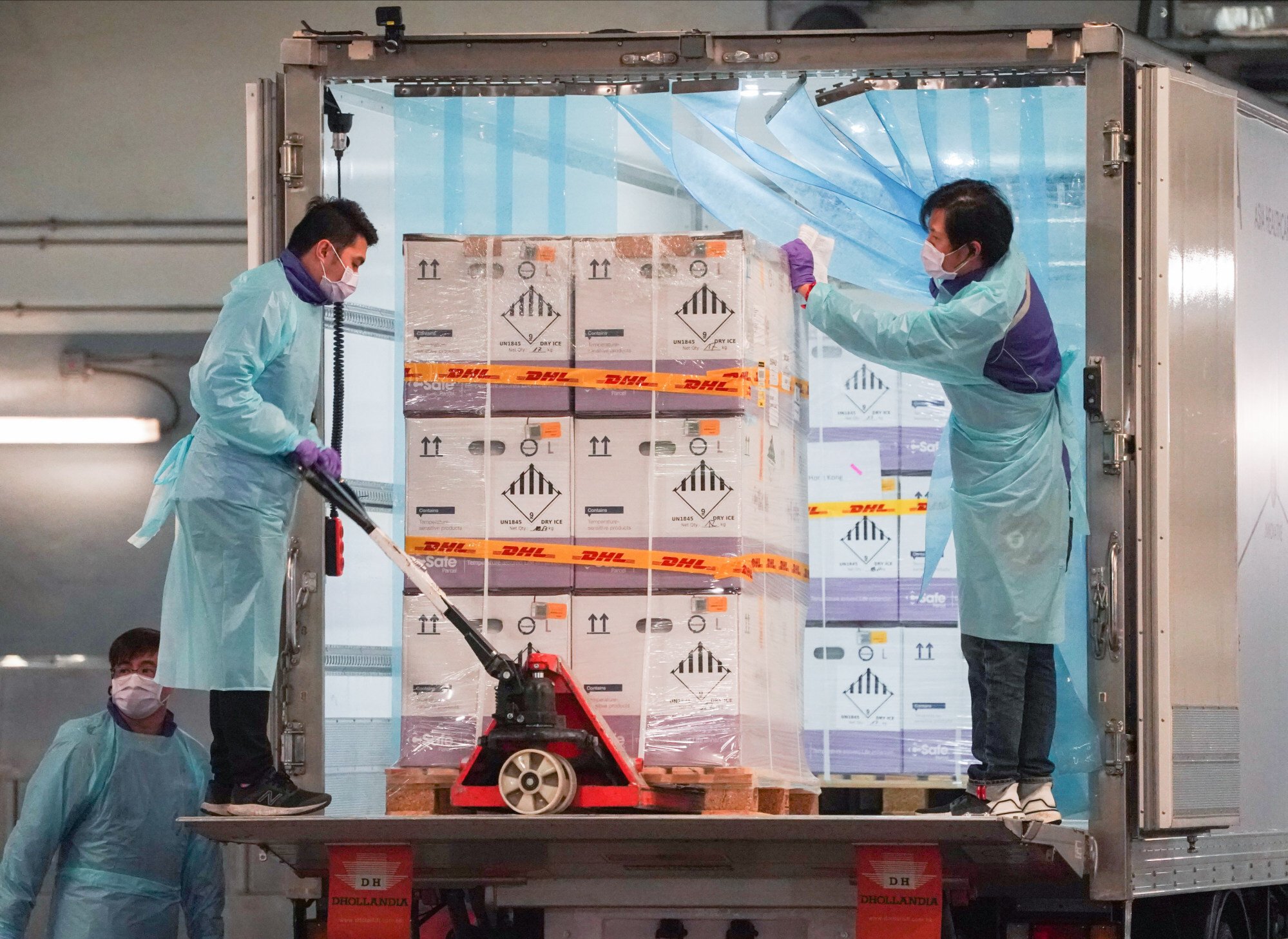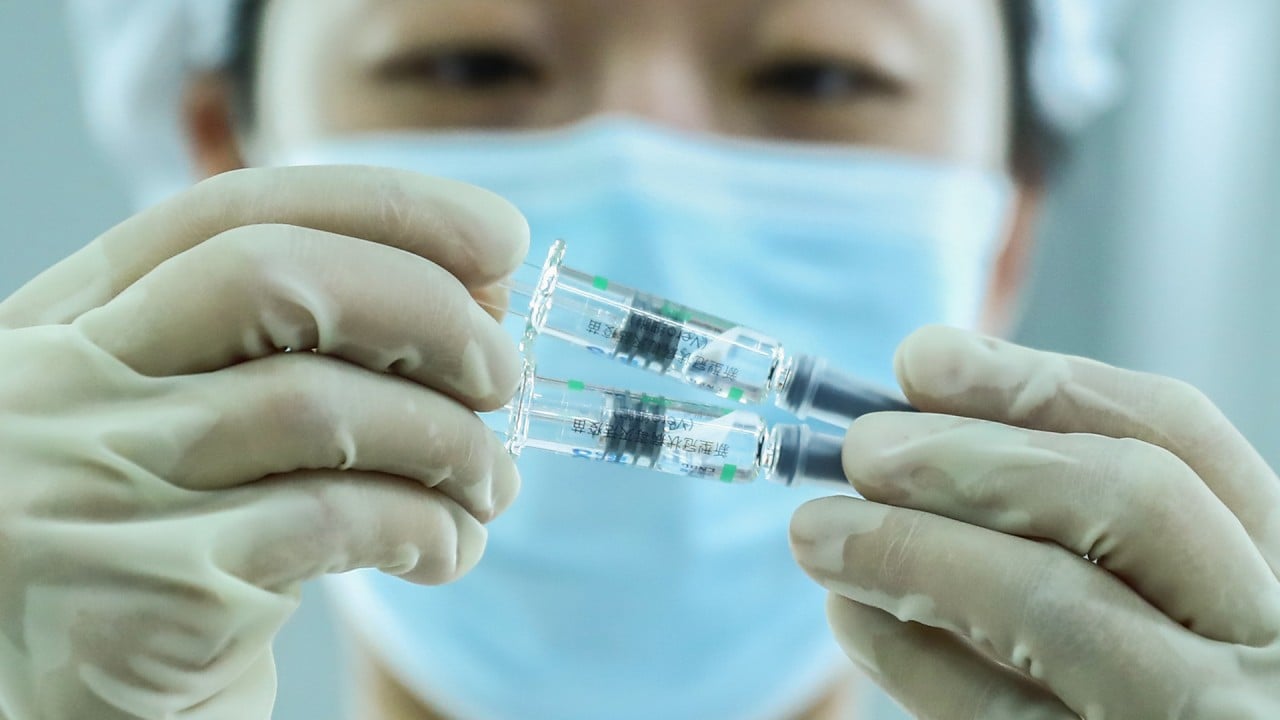
Coronavirus: China may approve BioNTech vaccine in June, report says
- Authorities expect it to get the go-ahead ‘somewhere in the June time frame’, head of AmCham Shanghai told Bloomberg
- It could be the first foreign-made Covid-19 jab to be administered in the mainland
Ker Gibbs, head of the American Chamber of Commerce in Shanghai, told the outlet that the Shanghai government said it expected the shot to be approved “somewhere in the June time frame”, Bloomberg reported on Tuesday. A direct conversation between AmCham and vice-mayor Zong Ming was cited.
A spokesman for AmCham Shanghai declined to comment further when contacted by the South China Morning Post.
Those vaccine makers have relied on more traditional technologies, and the country also has yet to approve an mRNA vaccine, a groundbreaking technology that has yielded significantly higher efficacy rates in clinical trials than vaccines in use in China.
Adding the vaccine to its domestic roll-out would be “good news”, according to virologist Jin Dong-yan of the University of Hong Kong’s medical school, who noted that even with limited supply, the highly effective vaccine could be targeted to have the greatest impact.
“If they could provide that to their health care professionals and high-risk groups that would be best,” he said, adding that overseas travellers could also be prioritised for the BioNTech jab. The vaccine was found to be 95 per cent effective in clinical trials.
Whether China will approve foreign vaccines has been closely watched, especially as an initial relaxation of border restrictions for certain foreign workers last month was limited to those who had taken Chinese-made vaccines.

There are signs such restrictions may start to ease. A notice posted on the website of the Chinese embassy in the United States on Friday said people who had received one of the three vaccines approved in the US, which includes the BioNTech jab, could present proof of this as part of their entry documentation.
The BioNTech vaccine was developed and distributed by Pfizer globally, while Fosun Pharma won exclusive rights to distribute the vaccine in mainland China, Hong Kong, Macau and Taiwan in March last year.
Doses have already been rolled out in Hong Kong and Macau, and the company launched a local phase 2 clinical trial of the vaccine, required for approval on the mainland, in Jiangsu province in November.
Fosun Pharma did not immediately reply to a request for comment about the Bloomberg report.
Approval of the jab could pave the way for more foreign vaccines to become available in China, where local drug makers have been working to expand manufacturing capabilities, as authorities aim to immunise 40 per cent of the population of 1.4 billion by July.
Over 195 million doses had been administered in China as of Monday, with a daily high last week of over 4 million shots administered.
Domestic production is expected to hit 3 billion doses by the end of the year, according to the National Health Commission. All but one of the four vaccines with market approval require two doses, while a fifth, which has received emergency use authorisation, needs three doses.
Meanwhile, China’s vaccine makers are juggling with international demands and had shipped over 100 million doses overseas as of the end of March, according to an industry group.
At least two Chinese companies are also working to develop their own vaccines using the mRNA platform, which uses genetic instructions to prompt the body to create harmless pieces of virus and provoke an immune response.
Feng Duojia, president of the China Association of Vaccines, said earlier this month that China was on course to produce a domestic mRNA vaccine by the end of the year.



